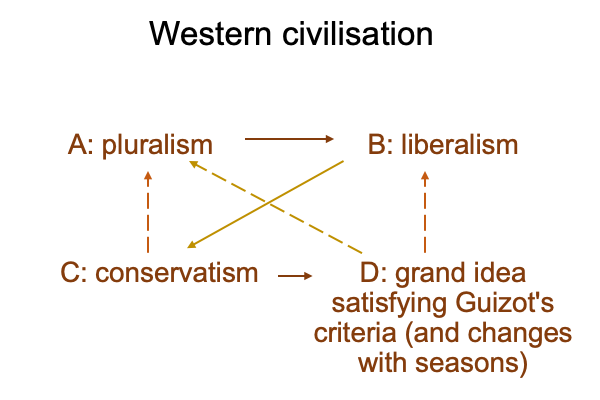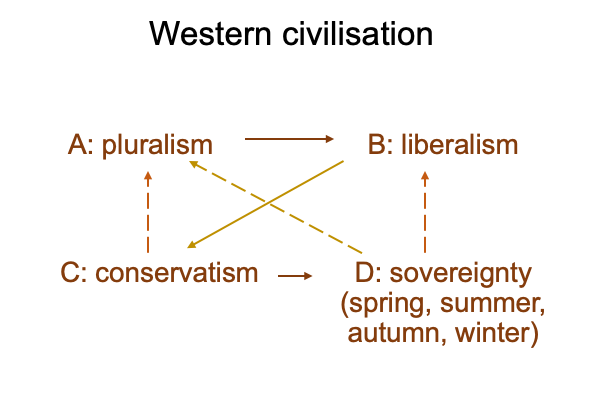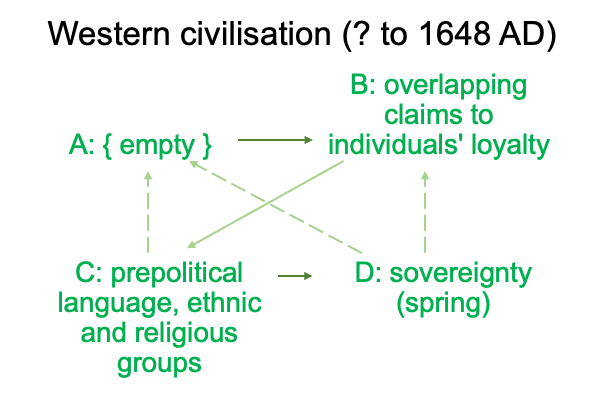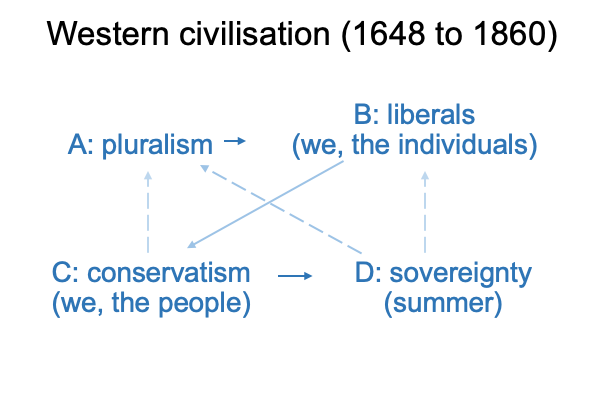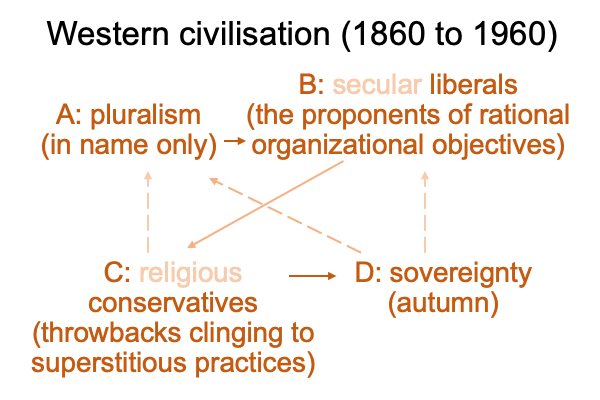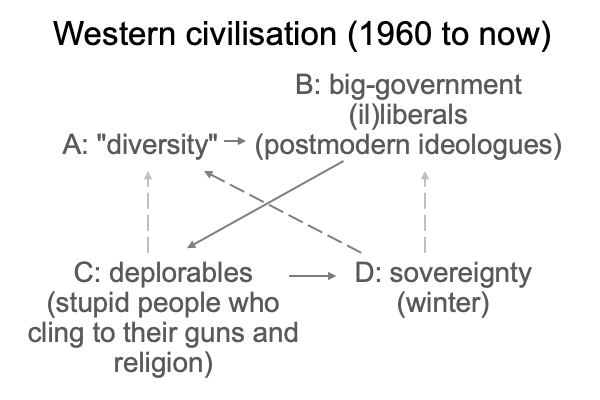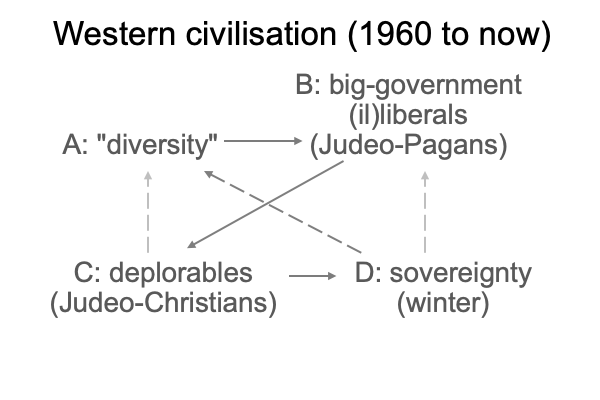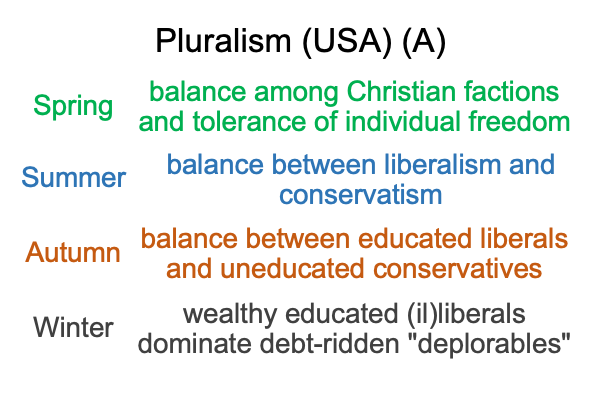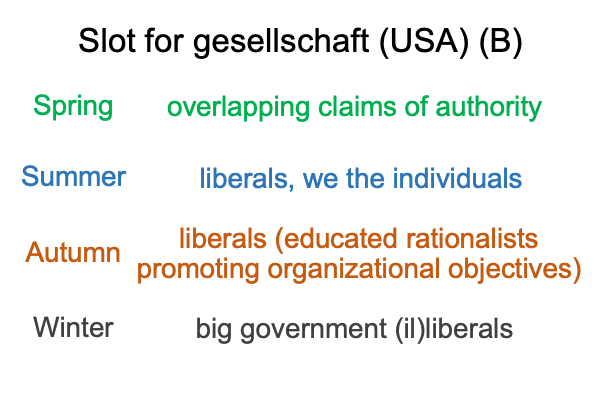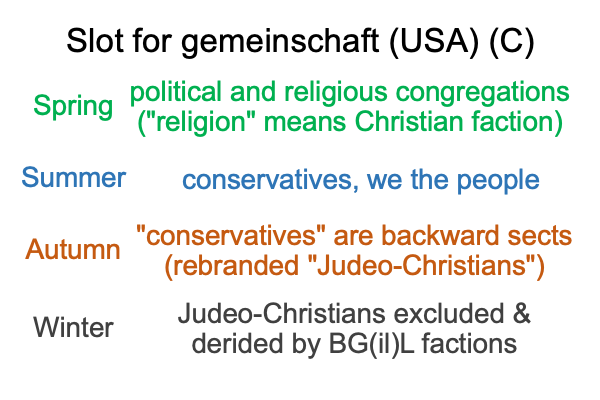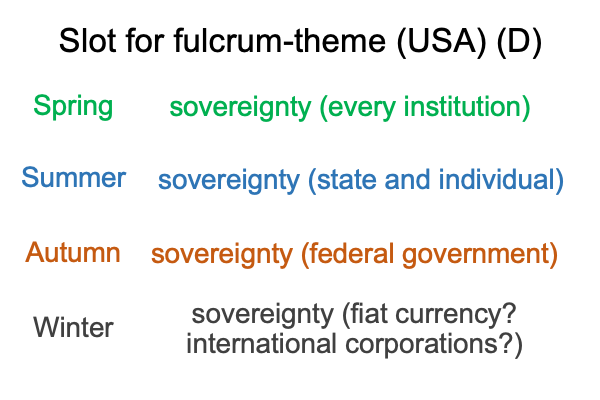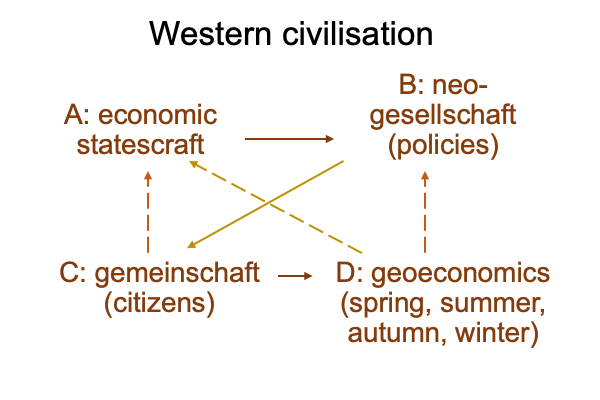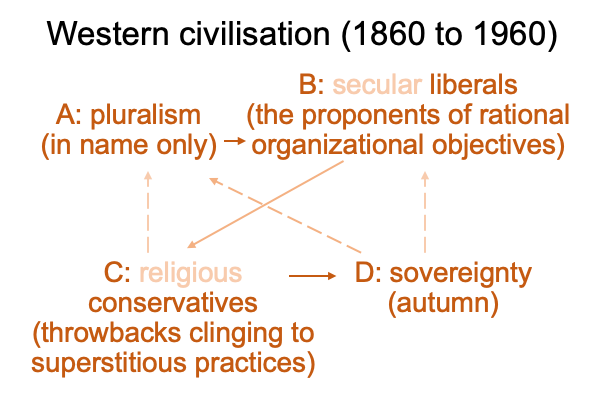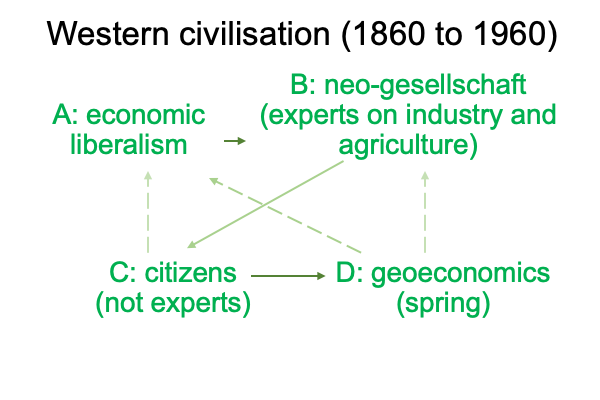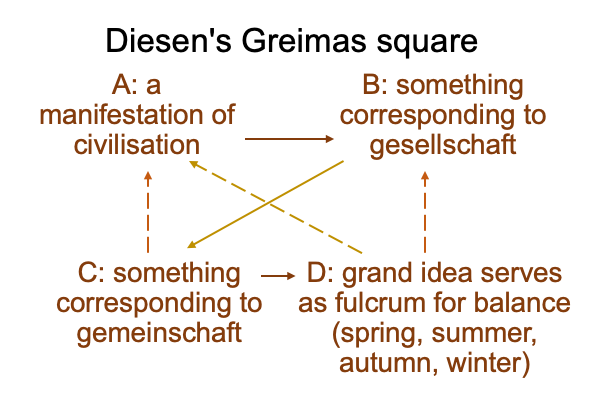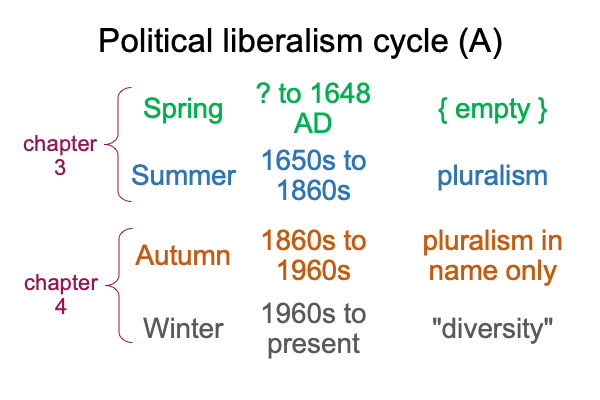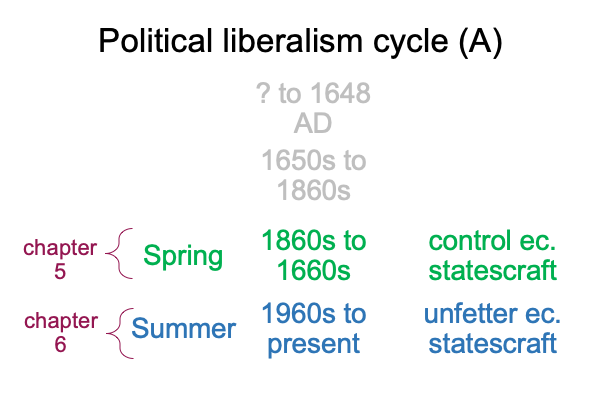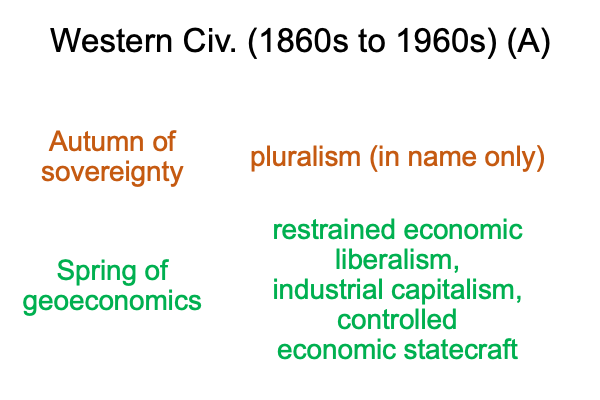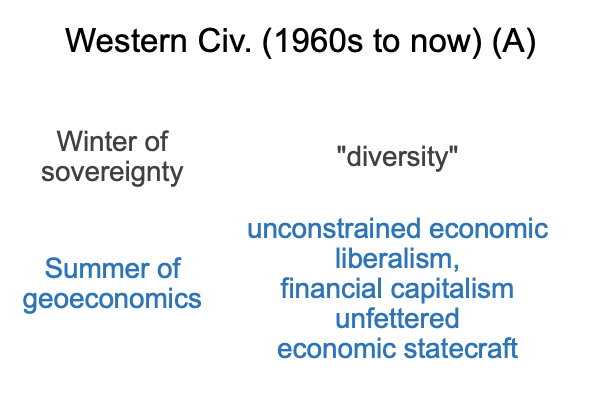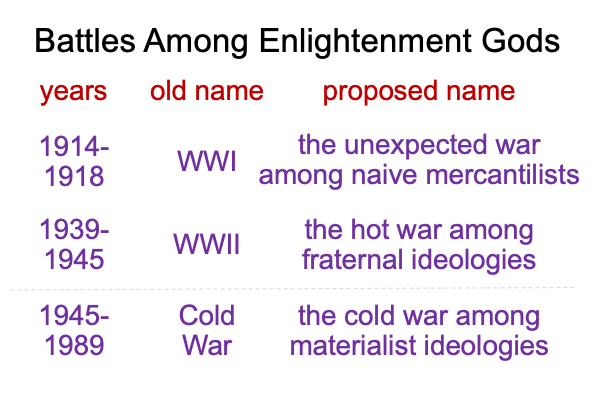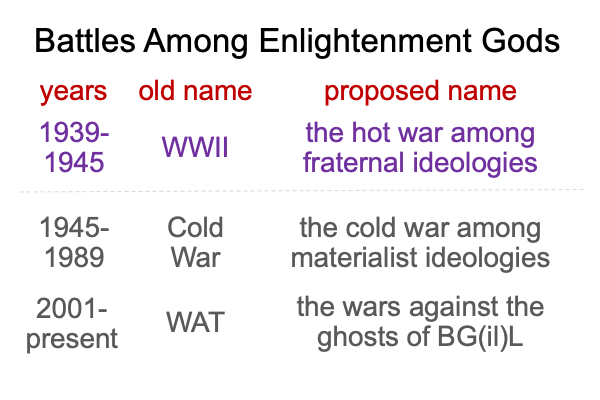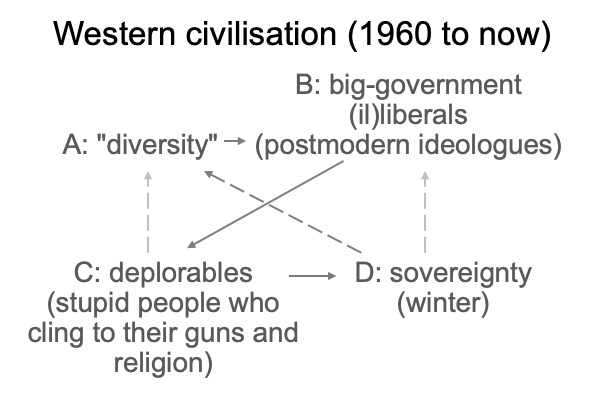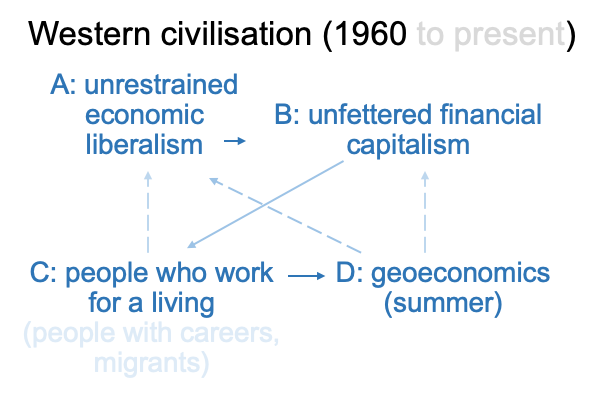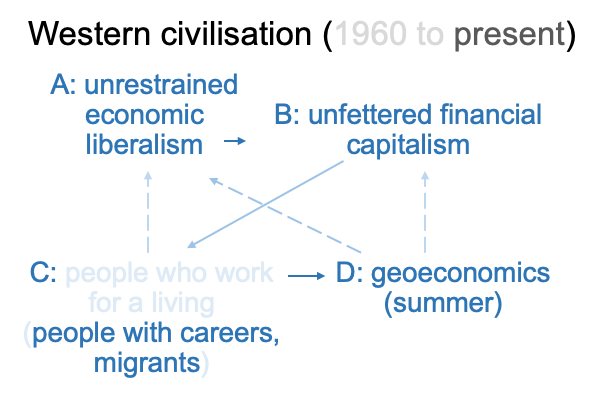Looking at Glenn Diesen’s Book (2019) “The Decay … And Resurgence…” (Part 7 of 21)
0061 Chapter two, on the rise and fall of civilizations, concludes.
What has this examination contributed to Diesen’s approach to theorizing civilisation?
0062 First, the factors that Diesen (following Tonnies) identifies compose a distinction within a unity. In our current Lebenswelt, gesellschaft and gemeinschaft are distinct, even though they cannot be separated. The ability to operate according to a distinction within a unity belongs to the Lebenswelt that we evolved in. It is manifest in hand-speech talk,which is practiced from the start of our own species until the first singularity (around 7800 years ago). Hand-speech talkis the first tool of the intellect for Homo sapiens.
0063 Second, just as hand-speech is a tool for coordinating minds, Diesen’s distinction is a tool for imagining civilizational attributes, such as politics, economics, religion and so forth. Indeed, terms associating to gesellschaft and gemeinschaft occupy two slots in Diesen’s Greimas square. The distinction inherent in humanity’s first intellectual tool is reflected in the labels that we apply to civilisational attributes. Gemeinschaft is like the hand-talk component of hand-speech talk. Gesellschaft is like the speech-component of hand-speech talk.
For these reasons, Diesen’s key terms command the items occupying slots B and C in a purely relational structure, the Greimas square, which serves as an intellectual tool in our current Lebenswelt for characterizing how a focal word or phrase (A) holds its place in spoken language, defined by Saussure as two arbitrarily related systems of differences.
0064 Here is a picture of Diesen’s Greimas square.
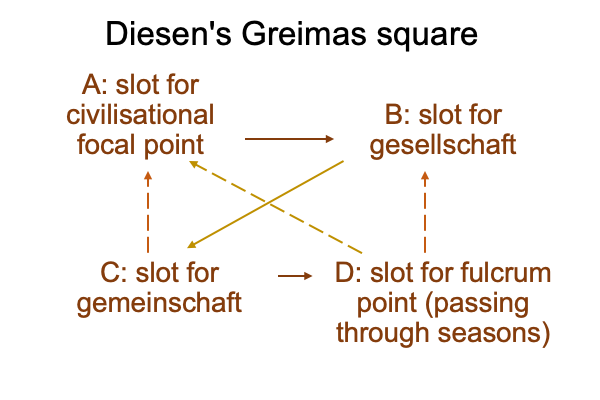
0065 Third, Diesen’s theory includes cyclic time. The items occupying slots A and D modify or develop during the each season, spring, summer, autumn and winter. Seasonality, too, is evolutionarily ancient. The Homo genus is adapted to reading the signs of the seasons. Our kind lives in a world perfused with signs that we recognize as natural.
Corresponding, Diesen’s Greimas square may be used to construct a vision for each season in a civilisational cycle. This is important because civilisational cycles commence the moment any hand-speech talking culture fully embraces speech-alone talk.
0066 In this regard, anthropologists may compare early cultural developments in the Ubaid archaeological period of southern Mesopotamia (0-1880 U0′) to cultural developments occurring in North America 4200 years after the start of the first singularity. See Razie Mah’s blog for March 2023, titled Looking at David Graeber and David Wengrow’s Chapter (2021) “Why the State Has No Origin” and the Razie Mah’s e-book, Comments On David Graeber and David Wengrow’s Book (2021) “The Dawn of Everything”, available at smashwords and other e-book venues.
0067 Fourth, the third point has been demonstrated by imagining the items for Diesen’s Greimas square for the four seasons inherent in a written Babylonian origin story, concerning how Marduk becomes the head of the city’s pantheon.
0068 Fifth, I raise the question, “How resilient is Diesen’s Greimas square? What do other contemporary theorists say?”
Another theorist working in this field is the Russian political philosopher, Alexander Dugin.
Not too long ago, a Canadian graduate student in philosophy decided to write his dissertation on the works of Alexander Dugin. Half his faculty committee quit, including two mavens of Leo Strauss. This establishment reaction to Dugin is currently typical in jurisdictions of American Big Government (il)Liberalism. The candidate, Max Millerman, only appeared to be free to choose his topic for dissertation. (Il)liberalism offers the appearance of free choice (liberalism) within its constraints of regulatory control (il-).
Is there another word for (il-)?
How about the word “hypocrisy”?
0069 Nonetheless, in point 0044 of Looking at Michael Millerman’s Chapter (2022) “…Dimensions of Dugin’s Populism”appearing in Razie Mah’s blog on February 17, 2023, the following figure appears.
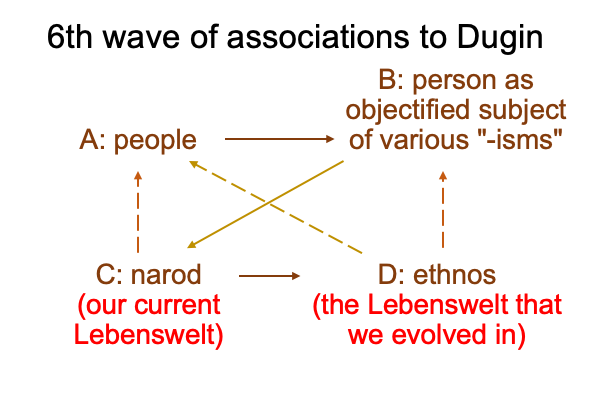
0070 Surely, this diagram, based on Dugin’s exploration of a fourth political theory touches base with Diesen’s Greimas square.
The focal word (A) is an attribute of civilisation. The people are the ones who stand before God, rather than a king or a high priest representing the people to the gods and the gods to the people. This is not about so-called “democracy”. The “people” is a theo-political construction.
The first contrast (B) associates to gesellschaft. For example, when Jesus asks his followers, “Who do people say that the Son of Man is?” (recorded in Matthew 16:13), the question obviously asks for opinions fashioned by the various political big-wigs of the day. Jesus refers to himself using a political term, “Son of man”.
The contradiction to the first contrast (C) associates to gemeinschaft. According to Dugin, “narod” is a Russian word referring to the pre-political community in our current Lebenswelt. These folk really do not have the vocabulary to articulate an answer to the second question of Jesus, asking, “Who do you say that I am?” They are dumbstruck because the obvious answer, “You are the one who we follow.”, is completely tautological.
D, the contrast to C, the complement to B and the contradiction to A (remember, “contradiction” literally means “speaking opposite to”) is Dugin’s theoretical term, “ethnos”. Ethnos (D) is a grand idea. Why? It cannot exist. Yet, it is crucial for our self-understanding.
Ethnos corresponds to us, in the Lebenswelt that we evolved in. Ethnos is us, in a world of… what Saint Thomas would describe as… original justice.
0071 A world of original justice?
See Comments on Daniel Houck’s Book (2020) “Aquinas, Original Sin and The Challenge of Evolution”, by Razie Mah, available at smashwords and other e-book venues.
0072 So, what does that mean?
Do Dugin’s and Diesen’s Greimas squares complement one another?
The question in point five (appearing at 0067) has an answer, saying, “Yes, Diesen’s Greimas square, which incorporates the key words, ‘gemeinschaft’ and ‘gesellschaft’, as well as cyclic time, is resilient and contemporary political theorists propose similar structures.”
0073 Thus, I conclude my examination of part one of Diesen’s book.

